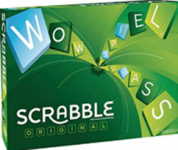martina
New member
- Table of contents
-
- Free time
- Keywords
-
- Language
Did you know?
Better communication can make it easier to meet the needs of the person with dementia![1]
Better communication can make it easier to meet the needs of the person with dementia![1]
Language is a process that allows a person to express thoughts, ideas, emotions and to understand a message, through spoken sounds, speech, writing, or gesture.
If you are a person living with dementia you know that sometimes it can become difficult to find the words, sometimes you can lose the meaning of words or the thread of speech. This can make you sad. It can have negative consequences on your social life with a great impact on your well-being and quality of life. The effort and anxiety resulting from the difficulty in finding words may lead you to remain silent and avoid speaking. In such cases, do not insist: distract yourself for a moment, look out of the window, release the tension of the moment. You will be surprised how your brain can respond better in other conditions.
A way to train your language skills is the well-known board game called “Scrabble”. The game is aimed at forming interlocking words on the game board in a crossword puzzle fashion.

Did you know?
Better communication can make it easier to meet the needs of the person with dementia![1]
Better communication can make it easier to meet the needs of the person with dementia![1]
Language is a process that allows a person to express thoughts and ideas and to understand a message, through spoken sounds, speech, writing, or gesture.
Language has an expressive function aimed at transmitting information or content and a relational function: when we speak, we also communicate our mood and our emotions. For example, if we are peaceful and quiet, we will use a calm and welcoming tone of voice; if we are angry, we will raise our voices. Paying attention to the language of our interlocutor enables us to perceive aspects such as what the interlocutor feels and the effect that our words have on him.
How language changes in a person living with dementia?
People living with dementia lose the ability to transform a set of sounds and words (talked or written) in a message of meaning, and to understand the information of a message. The language alteration is named aphasia and it involves difficulties in word finding and in phrase building. A person living with dementia may become unable to find words or may lose the meaning of words. In other cases, this process occurs but requires huge effort. Another altered element is the tendency to lose the thread of speech. Verbal communication may become difficult and tiring. People living with dementia need more time to recover words, they may not understand some parts of speech and could use a small number of words. This can result in difficulties in engaging communications and maintaining involvement in social life.
Negative consequences will have a great impact on well-being and quality of life.
You must remember…
If you're engaged in conversation with people who may have some language difficulties, it's important to pay attention to nonverbal cues, such as the tone of voice and the speed at which they speak. Remember that these aspects of the conversation continue to be understood and expressed even by people living with dementia!
Less used words tend to be lost first, so use easy and common expressions. Remember that if a person speaks more than one language, they will remember better the first one learned as a child.
Apps
-
Recommendation
No one knows better than you what time and level of play is optimal for you and your loved one living with dementia. So remember to stop before you feel, or perceive in your family member, tiredness or boredom! Play is a moment of pleasure, in which you can work on your language while feeling good and comfortable.
References
Kempler, D., & Goral, M. (2008). Language and Dementia: Neuropsychological Aspects. Annual review of applied linguistics, 28, 73–90. https://doi.org/10.1017/S0267190508080045
"Non so come avrei fatto senza di te" Manuale per i familiari delle persone con demenza (2013), Servizio Sanitario Regione Emilia Romagna
https://www.alzheimers.org.uk/about...gnosis/how-dementia-progresses/function-brain
[1] https://www.alzheimers.org.uk/about...gnosis/how-dementia-progresses/function-brain
Last edited:



